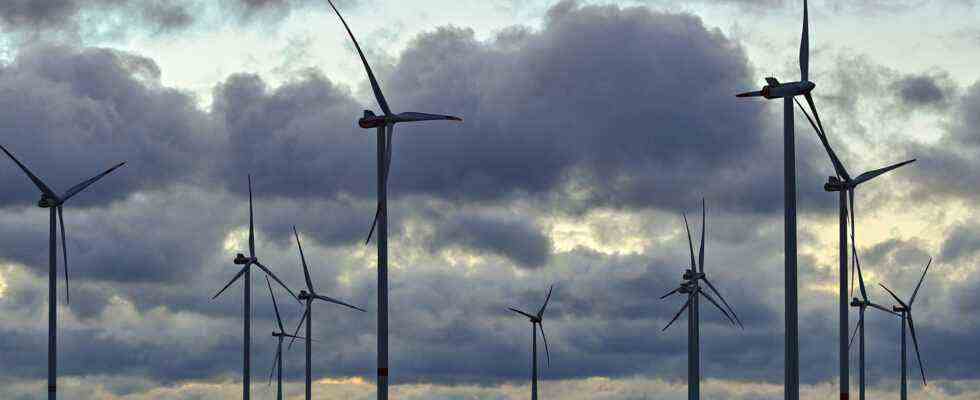Status: 02/02/2022 10:50 a.m
In order to curb the high energy costs for consumers, the federal government wants to quickly abolish the EEG surcharge. There is also support for this from the new Green Party leadership. But there is contradiction from the faction of the party.
The energy policy spokeswoman for the Greens in the Bundestag has expressed skepticism about the traffic light coalition’s plans to abolish the EEG surcharge this year. “The situation with energy prices is currently worrying us all. We now need structural answers so that we don’t quickly run into similar problems again,” said Ingrid Nestle to the editorial network Germany. “The SPD and FDP came up with the idea of lowering the EEG surcharge earlier. I would like to help more specifically, because it costs five billion euros to lower the surcharge by one cent – with half the money all those who are acutely affected could easily be helped have problems,” Nestle said.
Federal government largely agree
In doing so, Nestle is not only positioning itself against the coalition partners, but also against the new Green Party leadership, which also wants the EEG surcharge to expire earlier than previously planned. The abolition should be “started this year,” said Ricarda Lang, Green Party chairwoman newly elected at the weekend, at the beginning of the week. “Our goal is for it to happen as soon as possible.”
As a further measure to relieve people with lower incomes, Lang named the heating cost subsidy for housing benefit. In addition, the fair distribution of heating costs between tenants and landlords must be initiated. A “legally secure construct” is needed for the climate money that is also planned, said Lang. However, this takes some time.
Lang, like co-chairman Omid Nouripour, was elected to her new post at the digital party conference of the Greens on Saturday. The result still has to be confirmed by a written survey; this should be available by February 14th. Until then, the two previous chairmen, Annalena Baerbock and Robert Habeck, will remain in office.
“We have to ensure that energy is available here on favorable terms,” Michael Bräuninger, Professor of Economics
tagesschau24 10:00, 2.2.2022
Habeck: “As soon as possible”
Federal Economics Minister Habeck recently said that the EEG surcharge should be reduced “as early as possible” and “as far as possible”. At the beginning of the year, the levy was reduced from 6.5 to 3.72 cents per kilowatt hour.
The current plans of the traffic light coalition envisage that the levy on the electricity price will then be completely eliminated from 2023 and that the expansion of green electricity will be financed from budget funds. So far, the EEG surcharge is intended to finance the expansion of renewable energies. It is defined in the Renewable Energy Sources Act (EEG) and is paid by all electricity consumers as part of their electricity procurement costs.
Abolition of the EEG surcharge in the summer?
Federal Finance Minister Christian Lindner (FDP) had already stated that an abolition of the EEG levy on the electricity price was conceivable as early as this summer. “If the coalition agrees on this, then I would make it financially possible for the EEG surcharge to be dropped in the middle of the year,” Lindner told the “Spiegel”. Previously, demands for faster relief had come from industry, the Union and the Association of Towns and Municipalities. “In view of the increased prices, I think an earlier abolition is necessary,” emphasized Lindner. “That would be billions in relief for families, pensioners, recipients of BAföG or basic security and medium-sized businesses and crafts.”
Federal Building Minister Klara Geywitz (SPD) supports the plans and is also relying on the heating cost subsidy for the needy already prepared by the federal government to relieve consumers. The traffic light coalition wants to counter rising energy costs with a one-off subsidy for certain citizens, among other things. Anyone who lives alone and receives housing benefit should receive a one-off payment of 135 euros, a two-person household 175 euros. For each additional person in the household there is an additional 35 euros. Today the cabinet is supposed to approve Geywitz’s plans, followed by the Bundestag.
In an interview with the RBB away. Tax cuts are always called for quickly, but are not a solution. The state needs income to be able to act.
Heating subsidy: Geywitz defends draft against criticism
Jim-Bob Nickschas, ARD Berlin, 02/02/2022 09:22 a.m

